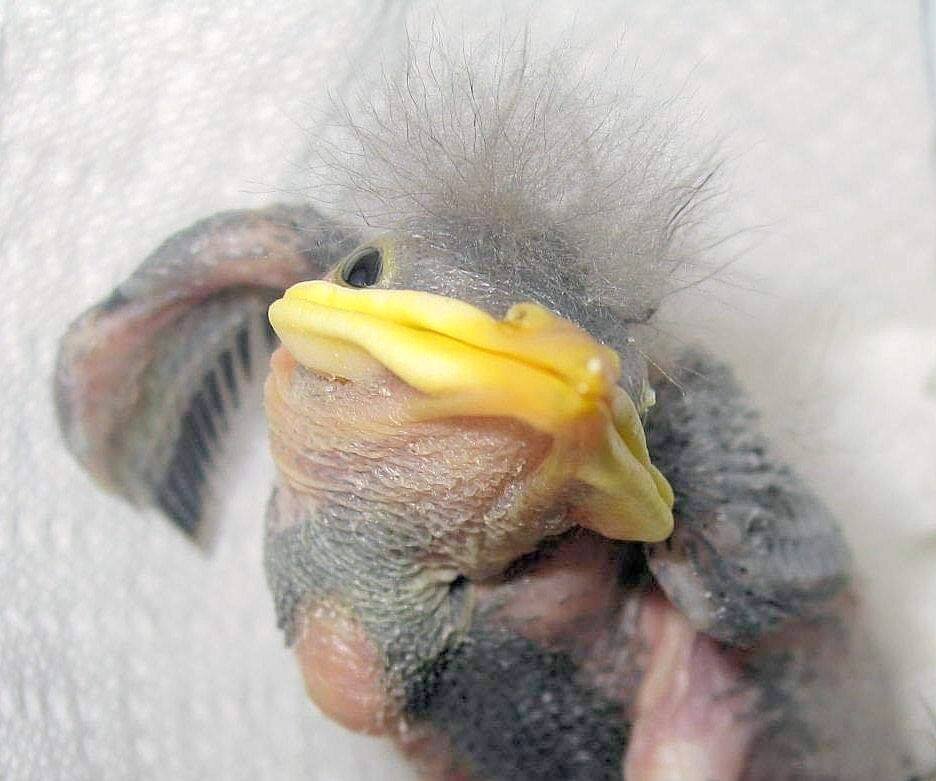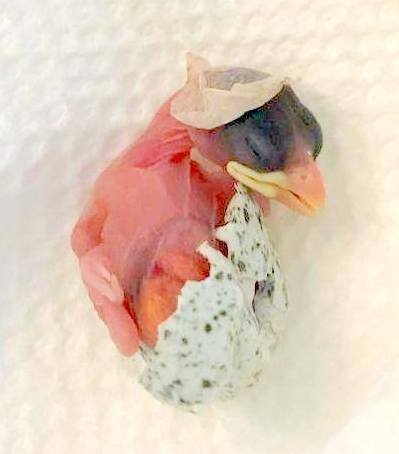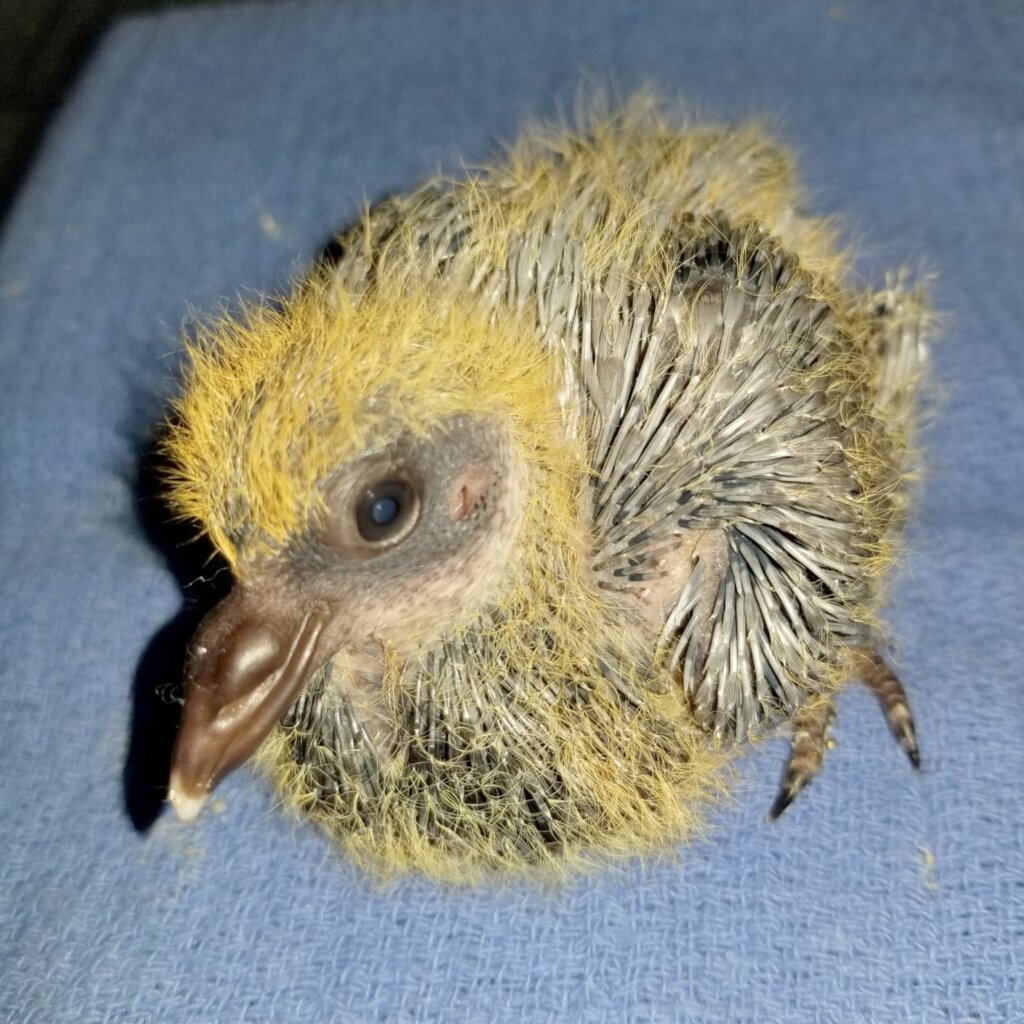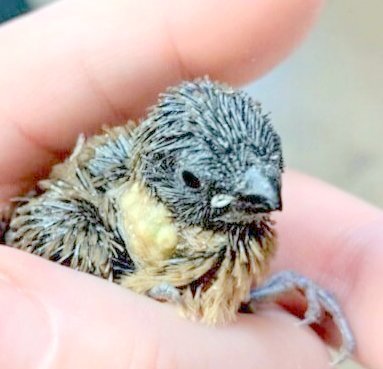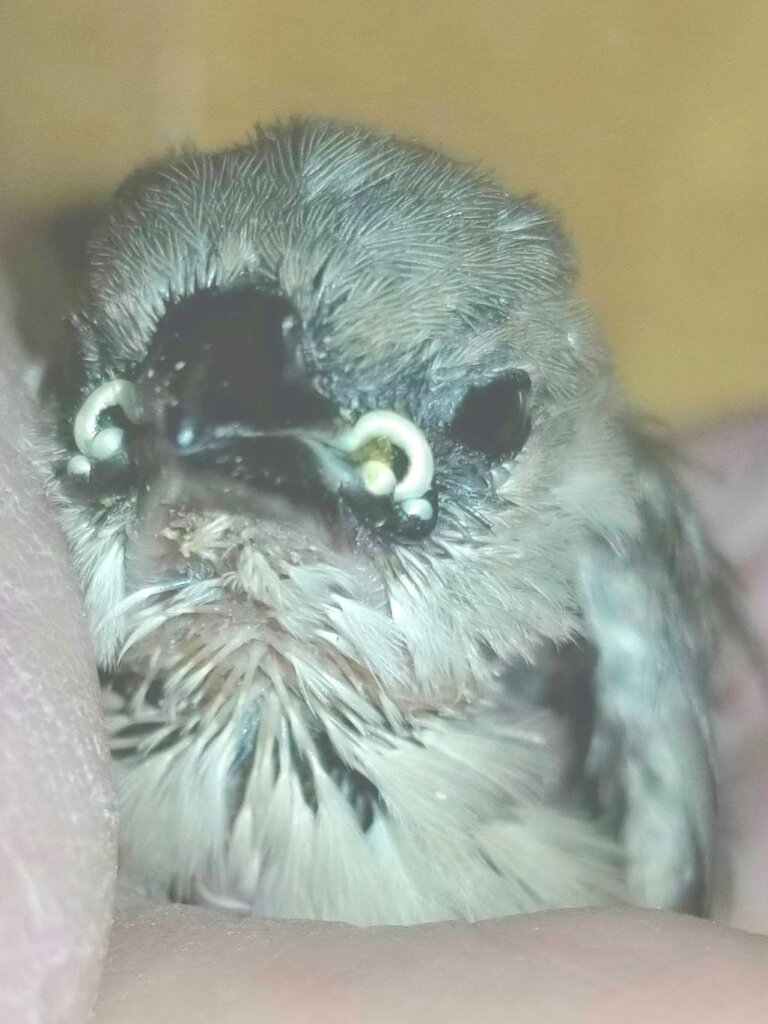By Teresa (Terry) Whatley | Founder / Director
Baby bird season 2022 is only weeks away! Spring is an incredibly busy time for us due to dozens and dozens of sick, injured, or orphaned baby birds coming in. Our intakes for 2021 totaled almost 1400 birds. Not all these were non-native wild babies or fledglings, but the vast majority were. They arrived by the droves during the months of March through August. We will be discussing only the non-native species of wild birds that we accept in this report. Native species of wild birds require both state and federal permits in order to rehabilitate them and need to go to individuals and facilities that possess those permits. Non-native species do not require permits.
Common non-native wild birds in Southern California are English House Sparrows, European Starlings, Rock Doves (pigeons), Eurasian Collared Doves, Japanese White Eyes, Nutmeg Mannikins, and Pin-tailed Whydahs. Some of these species have been prevalent in the US for many, many years. Others like the Japanese White Eyes, Nutmeg Mannikins, and Pin-tailed Whydahs are relatively new to becoming successful breeders in the wild.
When these tiny babies arrive, they require feeding every 15 to 30 minutes daylight until dark, a very warm environment of around 100 degrees until they are larger, and some require fairly specialized diets. The newly hatched babies weigh between 1 and 3 grams. As a point of reference, a dollar bill weighs 1 gram as does a standard sized paperclip. As you can imagine, they are very fragile, and their mortality rate is very high in spite of our best efforts. Sadly, humans are poor substitutes for their natural parents.
We are always in need of volunteers to handfeed baby birds in their homes as well as people who are able to help with transporting babies to us in a timely manner when the rescuer is not able to do so. If you would be interested in volunteering as a hand feeder or a transporter, we would love to talk to you.
As you know, veterinary costs are our single biggest expense. When baby bird season arrives, we are also faced with increased expenses for formula, specialized diets, specialized feeding utensils, housing, and heat sources.
We would be grateful for your continued financial support to help us with veterinary costs and the upcoming expenses that will be incurred during baby bird season. As always, we thank you for your support!
Project reports on GlobalGiving are posted directly to globalgiving.org by Project Leaders as they are completed, generally every 3-4 months. To protect the integrity of these documents, GlobalGiving does not alter them; therefore you may find some language or formatting issues.
If you donate to this project or have donated to this project, you can receive an email when this project posts a report. You can also subscribe for reports without donating.
Support this important cause by creating a personalized fundraising page.
Start a Fundraiser